What are you listening to and WHY might anyone be interested? (Vol. XIII)
Posted by: Richard Dane on 01 January 2017
2017 has arrived today, so time to start this thread afresh.
Last year's thread can be found here;
Oscar Peterson & Roy Eldridge

From allmusic.com
Part of his five sessions that featured duets with different trumpeters, pianist Oscar Peterson's matchup with trumpeter Roy Eldridge (reissued on CD) has its strong moments. Eldridge did not quite have the range of his earlier years, but his competitive streak had not mellowed with age. Petersonpushes Eldridge to his limit and the music is generally quite exciting. Highlights include "Little Jazz," "Sunday," and "Between the Devil and the Deep Blue Sea."
Christopher_M posted:Stevie Wonder - Songs in The Key of Life
Wiki tells me this was the last record of the three that comprise his 'Classic phase', the other two having had mentions here recently. Who am I to argue?!
Sides 1 and 4 are on one record, 2 and 3 on the other. Always baffled me.
C.
maybe for the old autochanger on an old mainstream music centre/record player.
stack the two LPs then flip them both over together, maybe.
Sons of Texas-Baptized In The Rio Grande
now playing.....
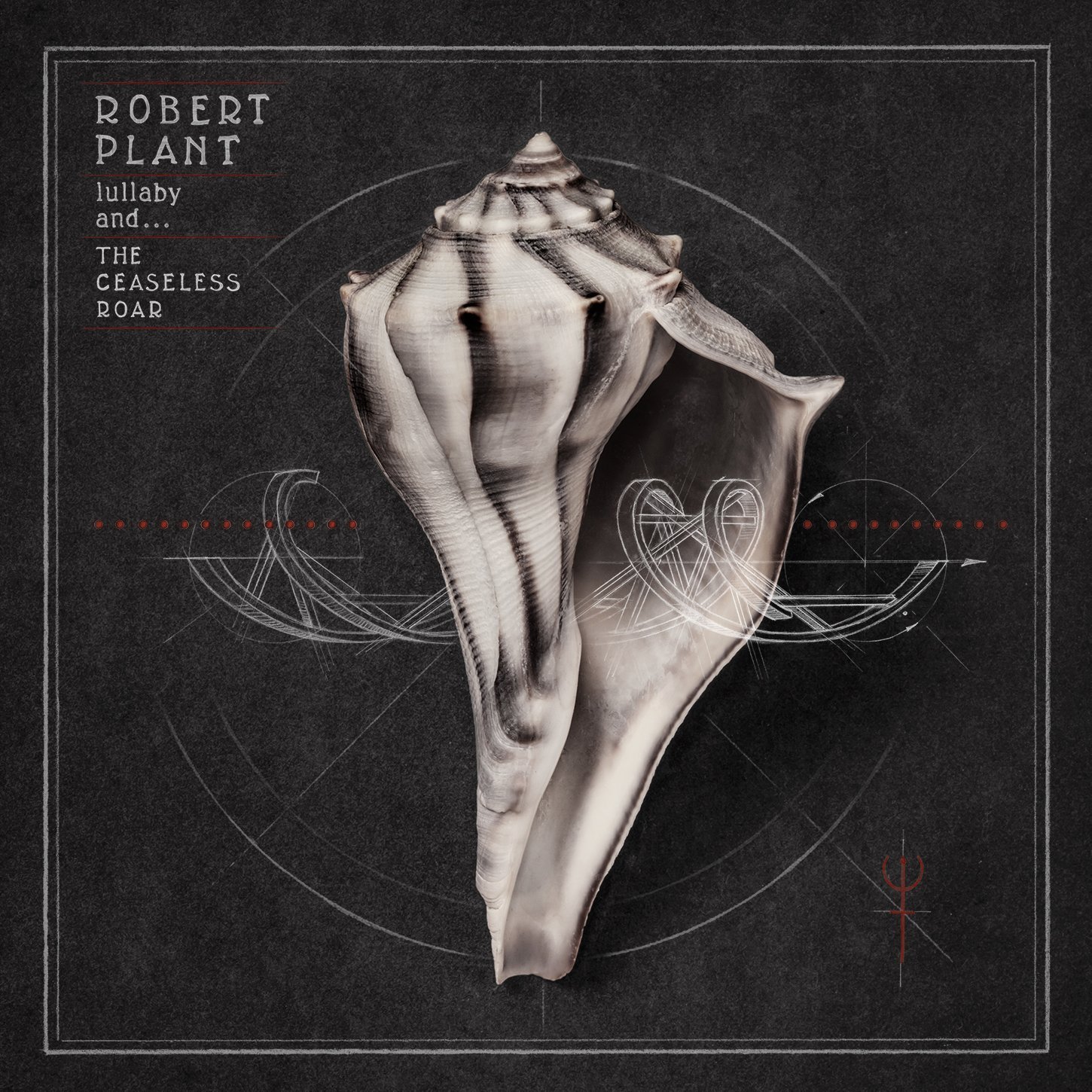
Robert Plant - lullaby and... The Ceaseless Roar
A mention above by Kevin-W and having listened to 'Now And Zen' & 'Raising Sand' the other day I thought it would be nice to start the morning with another Robert Plant album......
Now Playing.....

The War On Drugs - Lost in The Dream
With a couple of mention of 'The War On Drugs over the past couple of days by TONY2011, EWEMON and TED_P I thought I would give it a spin. Three tracks into the album and I am enjoying the music quite a bit!
César Franck (1822-1890): Sonata in A major for Piano & Violin
Ernest Chausson (1855-1899): Concert for Piano, Violin & String Quartet Op. 21
Isabelle Faust (violin) | Alexander Melnikov (piano) | Salagon Quartet
It is an interesting choice to pick a Maurice Denis cover for this album. The connection here is that Ernest Chausson actually hired Denis to paint three ceilings in his mansion in 1892 (around the time he composed the Concert). Actually the real reason is to prove to one forum member here that most woman actually do look the same? But in truth, in art and music, it is really the details below the surface that make the impressions on our soul. This isn't Facebook, after-all. And by details, I don't mean those things we can use words to describe. It is a higher, unspoken language.
Now place two of my favourite chamber works together on a disc and the expectations are quite high. Faust is playing her 1710 "Vieuxtemps" Stradivarius violin with gut strings and Melnikov is on a restored Érard piano, c. 1885. Choosing particular instruments is one contributing factor to the outcome. A second choice is in how one plays it.
In Faust's case, I think she is a fine player but her choices tend to put her in the "non-Romantic" camp where her strong, straight-forward sound clearly lacks warmth or much vibrato. Maybe, in a scholarly view, she is historically informed here but I ask in any musical performance whether a textbook view or your heart should guide you?
As for Melnikov, again he is a fine pianist but I have a slight problem with accepting an historical piano sound. As always, I believe it is interesting but if the performers want to record it this way they should also record it a second time and give us another version (on the same disc) with a beautiful, modern (or at least up to modern standards). This could include a piano from the last 100 years. I've heard many pianos from 1900-1940 that were fabulous. Let us decide which version we prefer. In time, the majority of listeners I am sure would only listen to the one with the most beautiful sound produced.
This whole concept got me thinking that in the case of a stringed instrument, those players seek the Stradivarious' or Gaurneri's for the sound. If a new instrument had these same qualities there would be no reason to pay millions for a 300 year old instrument (and no one would). Since, for me, one important element of musical enjoyment is about the sound quality, then it just doesn't make sense to choose something would get in the way of this. No one would ever dream of playing on a harpsichord for these recordings and performances. The reason is that clear lack of ability to control the colouring. A harpsichord is unidimensional in its ability to do so. This is why over time and by the mid 1850's piano manufacturers largely figured out what the best solutions were in grand pianos. Nothing new has really been added or changed since this time.
The weird thing is that I don't mind the Concert recording here. The piano is reasonable. I don't prefer it but I can enjoy it none-the-less. Maybe because you have 5 string players against one keyboard and it isn't really in the fore front? On the Franck though, I think it gets in the way. Of course, you only have a piano and a violin so it is hard to hide anything. The other reason is that I have spent two years of my life learning and playing the A-major sonata (with a cello). I know every note and so I am drawn to every note of the recording as well. While listening, I am vicariously playing this along with the performers here. I keep wondering why I don't have a better instrument?
I'm not saying the interpretation is off here other than that I prefer a little more heart and soul in this music. Maybe not historically correct but then I'm not historically or politically correct! I aim only to do what makes sense after much study and thought on an issue.
So, in conclusion, both Faust and Melnikov are among the best players around today but I am not exactly happy about some of the choices they took here (non-emotional). For some, this may be a plus?
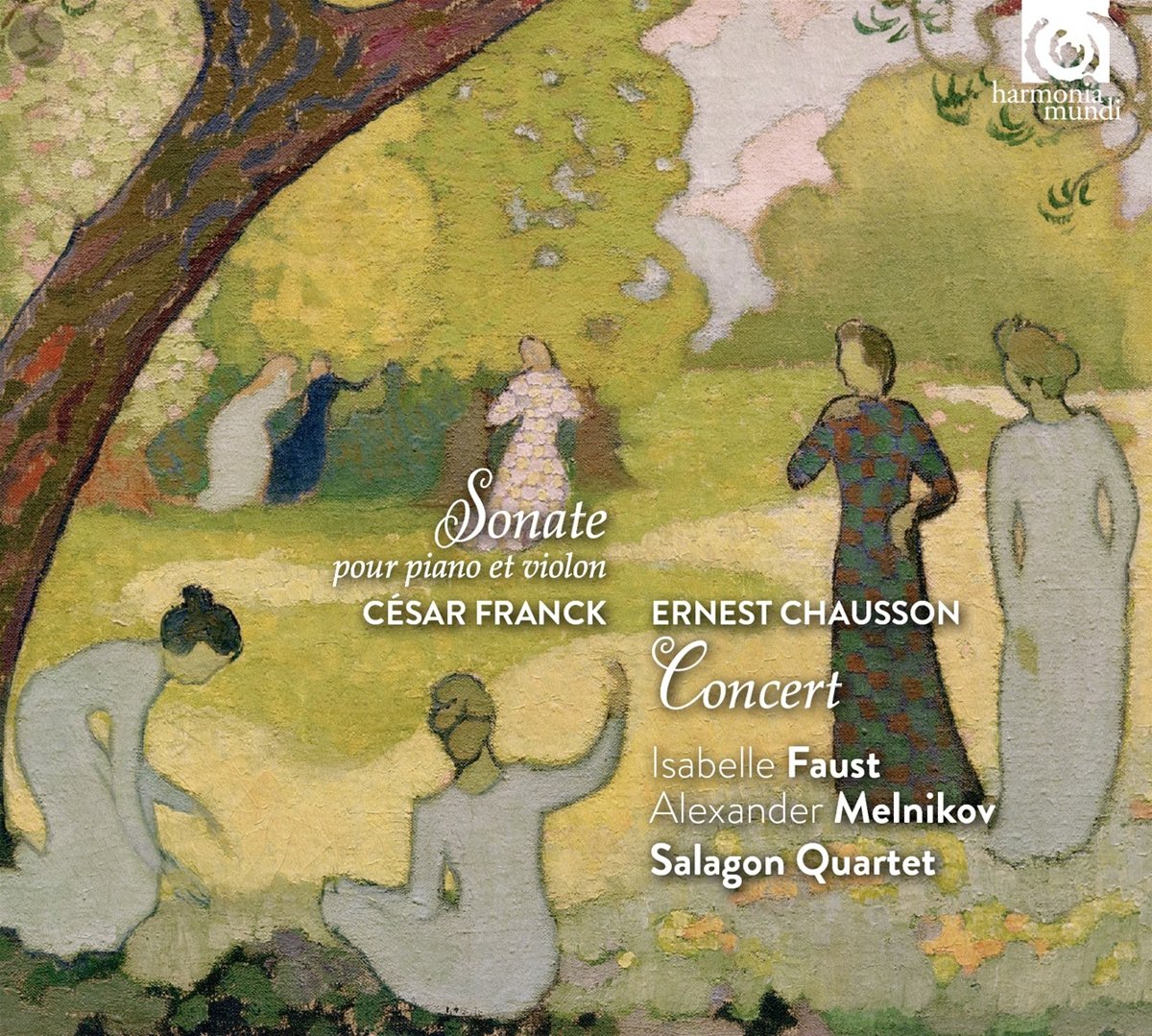
The real Maurice Denis painting below of Juillet, 1892. I am partially colour blind but I can tell by contrast something is different. Damn photoshopers today at HMM. What is up with them?

Grant Green - Matador
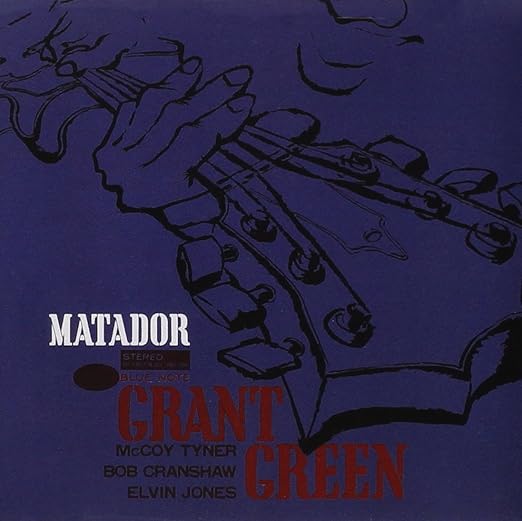
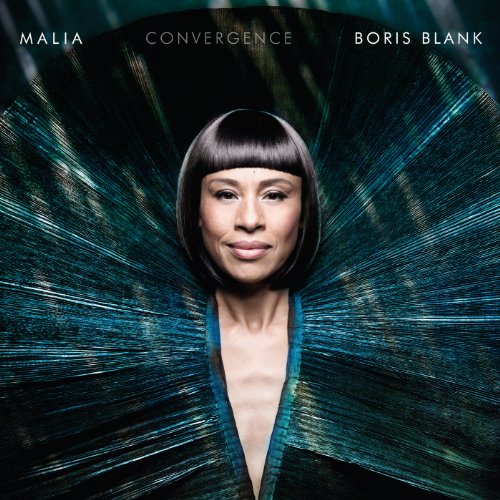
On re-issue vinyl...brilliant LP! ![]()
![]()
Adderley Brothers - The Savoy Recordings (recordings from 1955). 2CD-rip.
![Savoy Recordings [2 CD DIGI-PAK]](https://images-na.ssl-images-amazon.com/images/I/51cn2Ug-tML.jpg)
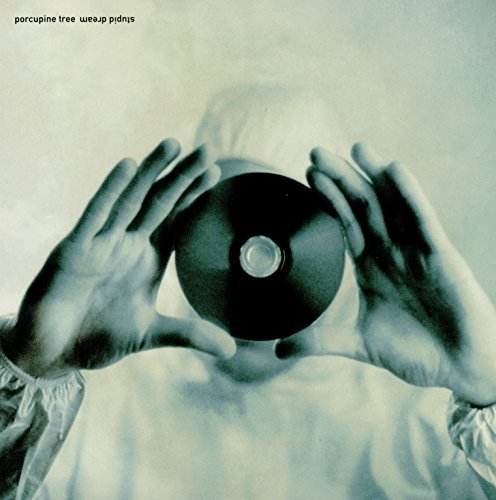
On vinyl...![]()
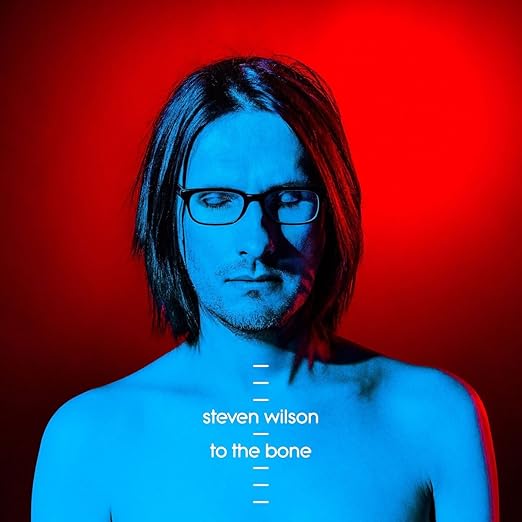
Followed by this, of course...on vinyl ![]()
The KLF - Chill Out . I've had this for 25years+ and its maybe where the Chill Out genre was formed ? I absolutely love it ! It was played many times in the early hours way back when .. Apparently recorded live it still sounds fresh today . A journey of Trance , Elvis , Passing Trains , Native Indian Chant , Acker Bilk , Radio News and Fleetwood Mac to name a few . After a very full on week its really got me chilled along with a nice bottle of Moretti !

apye! posted:
Followed by this, of course...on vinyl
![]()
![]()
![]() ...
...

1970 - vinyl - US first pressing...
Now Playing.....

The War On Drugs - A Deeper Understanding
.....continuing on with 'The War On Drugs' .....really enjoyed the 'Lost In The Dream' album, fantastic.

1971 - vinyl - U.K. First pressing....
Charles Lloyd - The water is wide.
With John Abercrombie, Brad Mehldau, Larry Grenadier and Billy Higgins.
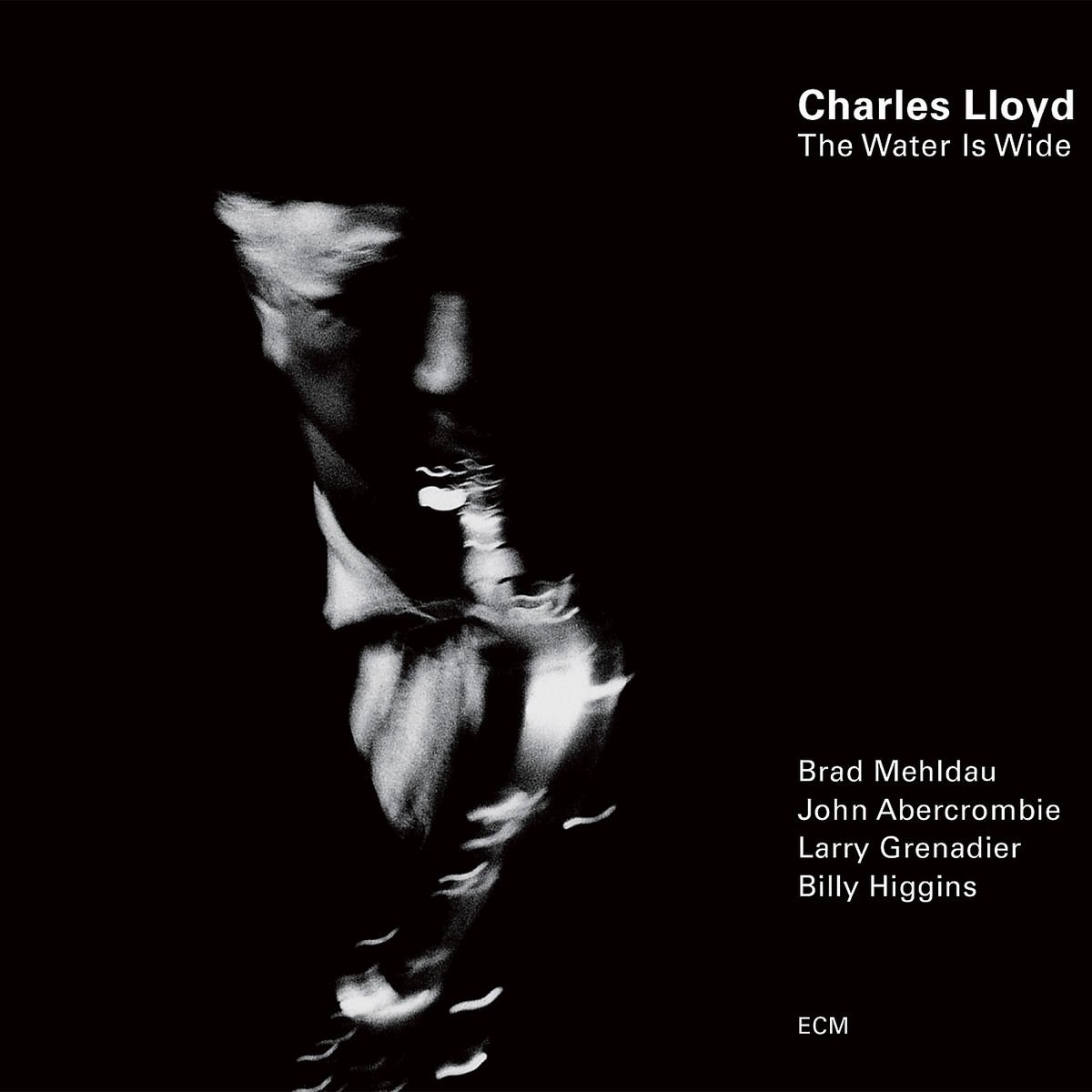
Tony2011 posted:
1970 - vinyl - US first pressing...
I don't know this band , a quick google suggests I should check them out thanks .
pete T15 posted:Tony2011 posted:
1970 - vinyl - US first pressing...
I don't know this band , a quick google suggests I should check them out thanks .
You certainly should check them out, Pete. Very influential british blues of the late 60s early 70s.
Now Playing......
Dire Straits - Live at the BBC
I have not heard this live album before.....so why not now.
Brad Mehldau - Places
A mix of solo and trio work.

......in the queue, up next

Charles Lloyd - Forest Flower: Charles Lloyd At Monterey
Charles Lloyd (tenor saxophone, flute), Keith Jarrett (piano), Cecil McBee (bass), and Jack DeJohnette (drums)
From the Tidal Notes: When Charles Lloyd brought his new band to Monterey in 1966, a band that included Keith Jarrett on piano, Jack DeJohnette on drums, and the inimitable -- though young -- Cecil McBee on bass, no one knew what to expect. But they all left floored and this LP is the document of that set. It is difficult to believe that, with players so young (and having been together under a year), Lloyd was able to muster a progressive jazz that was so far-reaching and so undeniably sophisticated, yet so rich and accessible. For starters, the opening two title tracks, which form a kind of suite (one is "Forest Flower-Sunrise," the other "Sunset"), showcased the already fully developed imagination of Jarrett as a pianist. His interplay with DeJohnette -- which has continued into the 21st century in a trio with Gary Peacock -- is remarkable: whispering arpeggios surrounded by large chords that plank up the drumming as DeJohnette crosses hands and cuts the time in order to fluctuate the time. Lloyd's own solos are demonstrative of his massive melodic gift: his improvisation skirted the edges of what was happening with Coltrane (as everyone's did), but his own sense of the deep wellspring of song and the cross-pollination of various world musics that were happening at the time kept him busy and lyrical. Elsewhere, on Jarrett's own "Sorcery," his linking front-line harmonics with Lloyd is stellar -- this isn't communication, it's telepathy! Jarrett's angular solo is buoyed up by Lloyd's gorgeous ostinato phrasing. By the time the band reaches its final number, a sky-scorching version of Brooks Bowman's "East of the Sun," they have touched upon virtually the entire history of jazz and still pushed it forward with seamless aplomb. Forest Flower is a great live record. ~ Thom Jurek
Tony2011 posted:
1970 - vinyl - US first pressing...
Not sure if you have heard the new one Tony but give it a listen the first track alone is worth it.
seakayaker posted:Now Playing......
Dire Straits - Live at the BBC
I have not heard this live album before.....so why not now.
Saw them on their very first tour and they were excellent then saw them again on the Communique tour and they were playing the songs literally note for note and were as boring as hell.


